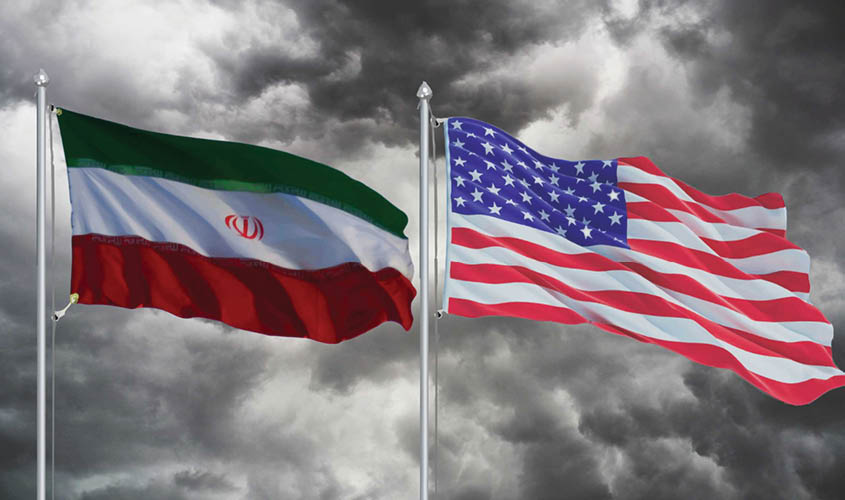A few years ago I called into Khasab, a port city on northern Oman’s Musandam Peninsula. My boat was berthed on a finger jetty in Khasab port, from which I witnessed the most remarkable sight. The harbour was full of dhows being loaded to the gunwales with large packages heading across the Strait of Hormuz, just 21 nautical miles at its narrowest. Those queuing to get into the harbour were passed by those accelerating out, to get their cargo to the Iranian mainland as quickly as possible. The scene resembled a huge conveyer belt.
I returned to the same jetty last year and the harbour was quiet and serene.
Why the difference? On my first visit, heavy UN sanctions on Iran were in place due to its refusal to suspend its uranium enrichment programme. Following the successful meeting in Lausanne in April 2015 of the five UN permanent members and Germany with Iran, which resulted in the Joint Comprehensive Plan of Action (JCPOA), these sanctions were lifted in exchange for limits on Iran’s nuclear programme for at least 10 years from January 2016. There was now no need for the Khasab conveyer belt and its harbour became again the focal point for tourist boats.
Sanction evasion is in the DNA of the Iranian regime. From its birth in 1979, there have been no less than 35 rounds of sanctions, giving the regime plenty of practice in evasion. Sanctions can work when there is strong mutual interest, as shown by the JCPOA. Enshrined in international law, the JCPOA has been hugely successful and remains today, notwithstanding the unilateral withdrawal by the US. Iran is meeting its obligations in full, as verified by the International Atomic Energy Agency.
To the dismay of the rest of the world, having ratted on the US side of the bargain, President Donald Trump has now resorted to bully-boy tactics in an attempt to destroy the JCPOA altogether. He is spraying secondary sanctions on all countries and organisations who continue to deal with Iran.
Trump appears to be completely unaware that his action has allowed Iran to occupy the moral high ground. Iranian diplomats are claiming that it’s the US which is the wrecking ball, proof they say that the US cannot be trusted. So what next? As the Economist reported earlier this year, “by pulling out of the Iran nuclear deal, President Donald Trump is counting on renegotiation or regime change. He is more likely to end up with war.”
“I’m ready willing and able to negotiate a new Iranian deal”, said Trump, to which Iran’s President Hassan Rouhani retorted last week, “Negotiate for what? First you respect the negotiations we already concluded, so that there are grounds for the next negotiations.” He added, “We are in a situation of economic war, confronting a bullying power. I don’t think that in the history of America, someone has entered the White House who is so against law and international conventions.” Ouch!
So, if there are to be no negotiations leading to a change of behaviour in Tehran, what about regime change? Although denied by the White House, Trump’s real bet is that sanctions will bring about economic agonies and topple the regime. This will not happen as Trump completely fails to understand the nature of the Iranian regime. He largely ignores his professional diplomats, preferring to develop his foreign policy, if it can be called that, on what he sees on Fox News.
Iran is an unusual country because there are effectively two parallel governments. The official government is that led by President Rouhani and the Majlis (Parliament). The unofficial government is the Islamic Revolutionary Guard Corps (IRGC), led by the tough Major General Mohammad Ali Jafari. Numbering about 130,000 military personnel, the IRGC was established by Ayatollah Khomeini in 1979 as an ideologically driven militia, which acts as the Guardian of the Islamic Revolution. Over the years it has assumed a greater role in nearly every aspect of Iranian society, acting as an effective suppressor of protest. Because of this there is no opposition party, so if you want regime change, what do you change to? Trump is in danger of repeating the horrendous mistake of President Bush in 2003, who also assumed an opposition party would take over in Iraq after Saddam Hussein.
Iranian society will certainly suffer as a result of the increased sanctions and there could be street protests as a result, but these will be kept under control by the IRGC. The EU is trying to keep the JCPOA alive by developing a payment system based on the euro. China, itself under US trade sanctions, is developing ways of trading Iranian oil in a secondary market, perhaps bringing forward the day that it clears global payment in yuan.
Iran will hunker down and manage sanctions as it has done for most of its 40-year existence. The Khasab conveyer belt will restart and sanction evasion will evolve further. US sanctions will fail. However, it would be a huge mistake by Iran if it restarted its centrifuges. Not only would it lose the moral high-ground, but it would play into the hands of the US National Security Advisor John (bomb Iran) Bolton, Saudi Arabia and Israel. The world would become an extremely dangerous place, although this would certainly distract attention from the Mueller enquiry in Washington. Now there’s a thought! Could this be Trump’s real game plan, or am I being too cynical?
John Dobson worked in UK Prime Minister John Major’s Office between 1995 and 1998 and is presently Chairman of the Plymouth University of the Third Age.

